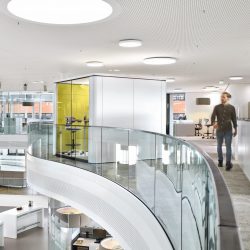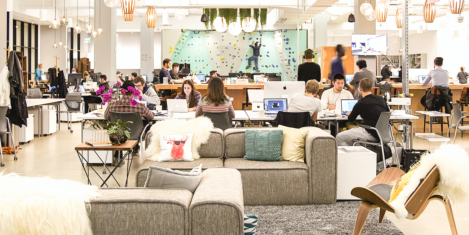To provide the best experiences, we use technologies like cookies to store and/or access device information. Consenting to these technologies will allow us to process data such as browsing behaviour or unique IDs on this site. Not consenting or withdrawing consent, may adversely affect certain features and functions.
The technical storage or access is strictly necessary for the legitimate purpose of enabling the use of a specific service explicitly requested by the subscriber or user, or for the sole purpose of carrying out the transmission of a communication over an electronic communications network.
The technical storage or access is necessary for the legitimate purpose of storing preferences that are not requested by the subscriber or user.
The technical storage or access that is used exclusively for statistical purposes.
The technical storage or access that is used exclusively for anonymous statistical purposes. Without a subpoena, voluntary compliance on the part of your Internet Service Provider, or additional records from a third party, information stored or retrieved for this purpose alone cannot usually be used to identify you.
The technical storage or access is required to create user profiles to send advertising, or to track the user on a website or across several websites for similar marketing purposes.
 Global spending on smart cities will reach $189.5 billion in 2023, according to the latest IDC Worldwide Semiannual Smart Cities Spending Guide. The report claims that the main priorities for investment will be resilient energy and infrastructure projects, followed by data-driven public safety and intelligent transport. It suggests that these priority areas will account for more than half of all smart city spending throughout the 2019-2023 forecast period. The guide claims to quantify the expected technology opportunity around initiatives at a regional and global level. (more…)
Global spending on smart cities will reach $189.5 billion in 2023, according to the latest IDC Worldwide Semiannual Smart Cities Spending Guide. The report claims that the main priorities for investment will be resilient energy and infrastructure projects, followed by data-driven public safety and intelligent transport. It suggests that these priority areas will account for more than half of all smart city spending throughout the 2019-2023 forecast period. The guide claims to quantify the expected technology opportunity around initiatives at a regional and global level. (more…)








 Firms in the FTSE 100 are on track to reach the target of 33 percent of women on boards by 2020 that was set by the
Firms in the FTSE 100 are on track to reach the target of 33 percent of women on boards by 2020 that was set by the 


 Over recent years, we have witnessed significant changes when it comes to the workplace. Women are continuing to push through the glass ceiling, offices are starting to look more likes homes and businesses are opting for a more flexible and sociable working environment. This rise in coworking and other forms of flexible office space is just one of the latest trends to emerge from the corporate world, and according to a report by office brokers
Over recent years, we have witnessed significant changes when it comes to the workplace. Women are continuing to push through the glass ceiling, offices are starting to look more likes homes and businesses are opting for a more flexible and sociable working environment. This rise in coworking and other forms of flexible office space is just one of the latest trends to emerge from the corporate world, and according to a report by office brokers 


 Cities with tech innovation-oriented cultures have a strong competitive advantage amongst those investing in commercial real estate, claims
Cities with tech innovation-oriented cultures have a strong competitive advantage amongst those investing in commercial real estate, claims 


















June 25, 2019
Office furniture firms take their partners
by Colin Watson • Comment, Furniture, Workplace design